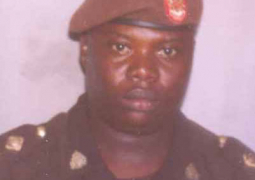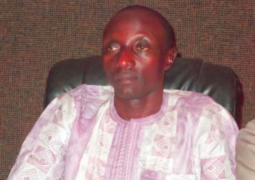
For the first time in the history of Gambian sports in this part of the nation, this is regarded to be another move in the development of sport in the nation, Mr Joof told journalists at the ongoing national athletics championship held over the weekend at Farafenni, which showcased students from 105 junior and senior secondary schools from across the country.
Joof said the performance of the athletes shows that The Gambia has talented people, who need more encouragement and support, since they the athletes have continued to raise the Gambian flag at every international competition.
Speaking to reporters on day one, Joof revealed the need for more infrastructural development before the decentralization of sports, which is a major factor in the way forward for sport in the country, as well as the need for qualified personnel and funds to move the sport.
He urged the Ministry of Youth and Sports and all stakeholders to ensure the decentralization of sport in the country by providing the necessary materials to do so to register more successes in sport.
Highlighting the significance of school sports, Kapi says his association has been doing well, as well as donating medals and trophies, providing coaching training and holding seminars to develop schools sports.
He commended all athletes that over the past years have represented The Gambia both in Africa and other parts of world.
He further says that without schools, sports development in the country would be difficult.
Martin Gomez, Principal of Saint Augustine’s Senior Secondary School, who is also the president of the Gambia Senior Secondary Schools Associations, also commended the athletes for their commitment, determination and participation despite the holding of the events in a different environment this time round.
“Challenges are meant to be faced and that is what we have done and we have made it to ensure we achieve this,” he says.
He encouraged other regions to host the event if they get the support and facilities to do it. While commending the press for a job well done in its report of the event, Mr Gomez said the event, widely watched, requires more support.
Gambia National Olympic Committee president Alhagie Momodou Dibba, who spoke to reporters on day two of the event, said their presence at the event would have given them the opportunity to work with the regional sports committee coordinators and the Ministry of Youth and Sports with the National Sports Council to meet the status of the mini stadium.
Dibba said they are working with the secondary school committee as well as playing a major role in facilitating some of the significant components.
Dibba said further that they are working not only on decentralizing the sport in the Greater Banjul Area, but also in the regions, which he said have many talented athletes that also need support.
Read Other Articles In Article (Archive)



